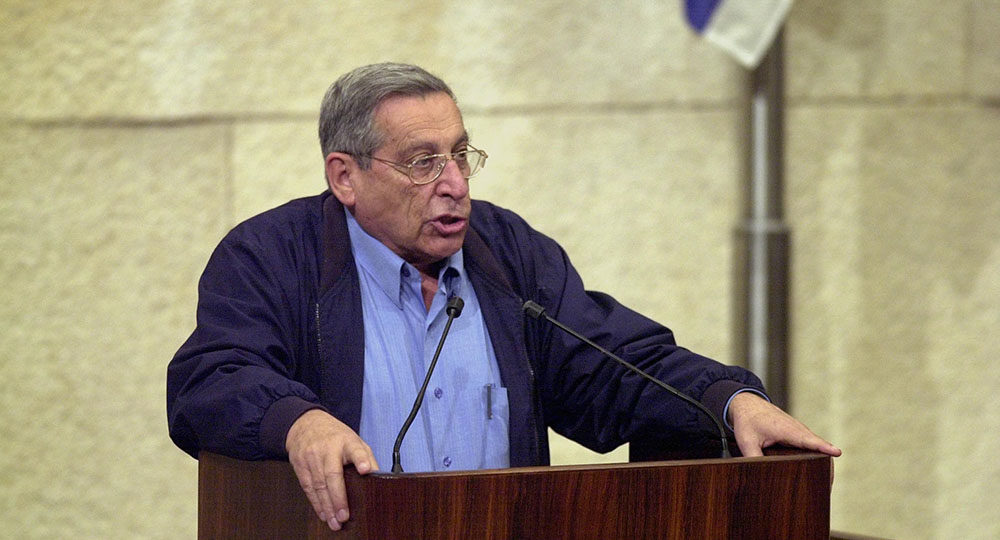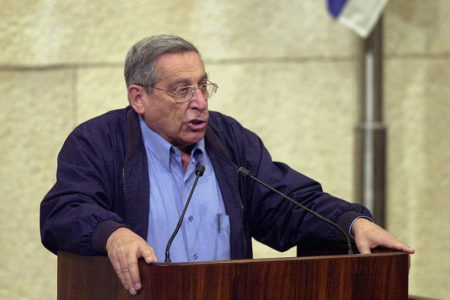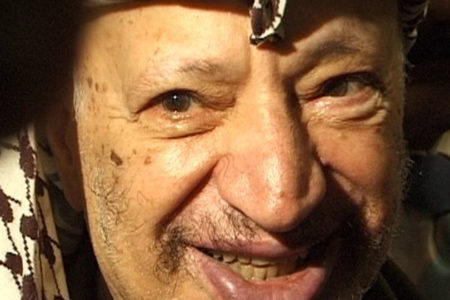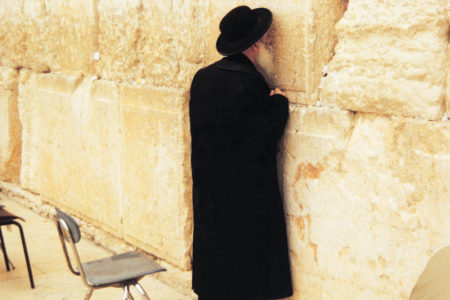America’s Perplexing Diplomacy
Nearly a year after the devastating terror attacks in the United States, Israelis can no longer ignore a reality they neither expected nor prepared for. Even though the United States has shown Israel great respect and understanding, it is obvious that Israel’s freedom of action in its own war against terrorism could well conflict with American objectives.
Why, many Israelis wonder, would the United States seek to restrain Israel, when Israel is the one country that could help it more than any other and whose support of American interests is second to none?
What few Israelis seem able to comprehend is that the very answer to that question lies in its asking. Israel’s close bond to the United States may well be the reason that successive administrations feel so comfortable publicly criticizing the Jewish state. After all, Israelis are unrivaled for self-criticism. If Israelis can criticize themselves with such harshness, why can’t others?
Precisely because Israel is the only democracy in the Middle East, it is also America’s most secure ally. As such, Israel would be the last country in the region to seek a reduction in American power or influence. In short, the cost of taking on Israel is rather limited. And the chances of Israel abandoning U.S. support and offering to join forces with Muslim extremists are about as great as the chance of the Muslim extremists accepting Israel’s offer.
In the initial weeks following September 11 last year, Israelis and their American supporters were prepared to accept the measured, if not persistent, criticism of Israeli counter-terrorism measures because they believed it was confined to the State Department briefing room. Where it mattered, they assured themselves, U.S. support both for Israel and Israel’s actions to defend itself against terrorism were rock solid. Since the war’s initial field of action was more than a thousand miles away, Israelis more or less excused the cold shoulder, understanding that the United States needed to take the tactical steps necessary to access the logistical, staging, and intelligence resources it would need to wage its Afghan campaign.
Cold-Blooded Murder
Then came October 17. At 7:00 that morning, four terrorists from the Popular Front for the Liberation of Palestine (PFLP) pulled into the parking lot of Jerusalem’s Hyatt Hotel. Two gunmen entered the hotel and waited around the corner from the elevator bay on the eighth floor.
As he did every morning, Tourism Minister Rehavam Ze’evi finished his breakfast and was going up to his room to collect his things before going to work. Ze’evi emerged from the elevator and walked toward his room. Upon hearing his name, the 75-year-old decorated general and outspoken rightist turned around to find himself facing a terrorist at point-blank range, pointing a nine-millimeter pistol between his eyes. The terrorist pulled the trigger three times. Ze’evi was killed instantly, and the terrorists got away without so much as a chase.
Within hours, Israeli Prime Minister Ariel Sharon’s unwieldy coalition government was on the verge of collapse. Rightists demanded that the murder of one of their own members be met with an immediate and severe military strike against the PFLP and its state sponsors in Yasser Arafat’s Palestinian Authority (PA). The Labor party, led by Foreign Minister Shimon Peres, urged restraint.
Sensing a significant hardening of public opinion and the obvious rage of his erstwhile right-wing allies, Sharon ordered the Israeli army to take up positions inside six Palestinian towns under Arafat’s control. In addition to capturing or killing those responsible for Ze’evi’s murder, the other objective was to destroy quickly or at least disrupt as much of the terrorist infrastructure in the towns as possible.
While everyone knew the United States would almost certainly not voice open support for Israel’s anti-terrorist crackdown (many even expected a public rebuke), almost no one here was prepared for what happened. The unusually harsh language and unequivocal demands that Israel “immediately” withdraw its forces from Palestinian areas, “never to return,” were reinforced by the president himself.
Didn’t the Americans understand that publicly hauling Israel over the coals would not, as the U.S. State Department naïvely hoped, encourage “moderate” Arab states to support the antiterrorism coalition? Didn’t Americans understand it would only weaken them? Couldn’t they see that, apart from being hypocritical, condemning a democratic ally for employing the same tactics they themselves were using (although far less effectively) in Afghanistan had exposed the United States to far greater risk?
Doesn’t the American government realize that by criticizing Israel for hunting down terrorists, it’s telling its enemies that terrorism pays?
Even Shlomo Ben-Ami, former Prime Minister Ehud Barak’s foreign minister and one of Israel’s leading peace advocates, seemed despondent over how America had treated Israel. Ben-Ami said the only possible outcome of the U.S. demand for an Israeli withdrawal was certain American failure. If Israel complied, he argued, then the United States has effectively issued an open invitation for more terrorist acts against it.
If, on the other hand, Israel refused American demands, then the United States would lose what little leverage it might have had with moderate Arab regimes because they would see that the United States could not even control its closest ally. Whatever private pressure the United States may have exerted on Arab regimes would become far less menacing.
When Is Enough, Enough?
Enter the Saudis. Crown Prince Abdullah’s announcement that Saudi Arabia would be prepared to organize the Arab world’s recognition of Israel in exchange for a complete “withdrawal to the lines of June 4, 1967”—which would include handing over all Jewish and Christian holy sites to Yasser Arafat and evacuating all strategic points—generated much the same reaction here that a dog would receive for counting to ten. Although hearing a Saudi leader even talk about peace with Israel could seem positive, it would be as silly to infuse it with great credibility as it would be to nominate the counting dog for a Nobel Prize in mathematics.
If still more proof were needed to demonstrate that trying to make peace with Yasser Arafat is a lost cause, the Israeli navy’s intrepid predawn seizure last February of a gunrunning cargo vessel packed with $25 million of Iranian-supplied weapons should have provided it. The evidence was irrefutable. The Karine-A was registered to Arafat’s Palestinian Authority, paid for with PA funds, and skippered by a lieutenant colonel in the PA navy who told investigators his mission was to deliver the illegal arms directly to the PA. At least seven of the thirteen crew members belonged to at least one of Arafat’s private militias.
Israel called the cargo the largest and most dangerous illegal arms shipment ever attempted. Had it reached its destination, every inch of Israel would have been in range of the weaponry, which consisted of long- and short-range Katyusha rockets; LAW and Sagger antitank missiles; long-range mortars; sophisticated mines; hi-tech explosives; hundreds of high-powered sniper rifles; thousands of rocket-propelled grenades; antitank grenades; and, most dangerous of all, an undisclosed number of SA-7 (Strella) antiaircraft missiles, the very presence of which could imperil commercial air service into and out of Tel Aviv.
On the other hand, if nothing in Arafat’s four-decade terrorist career could justify discussion of his removal, why should a little Katyusha running? As it turns out, it didn’t. Israel didn’t seem to view it as more than another public relations opportunity, while the United States treated it as a public relations challenge. Neither saw it as reason to replace Arafat and his terrorist supporting regime with one less malignant.
Not only did the U.S. State Department refuse to discuss breaking with Arafat, its special Middle East envoy, who was in Jerusalem at the time of the capture, didn’t even issue Arafat a stern rebuke. Quite the contrary. Retired Marine General Anthony Zinni concluded his visit two days after the boat was seized by beaming to reporters that he now saw “a real opportunity for progress.” To emphasize that point, a State Department official traveling with Zinni bluntly pronounced, “Our mission will go on, ship or no ship.” That passing comment perhaps explains why American and Israeli approaches to Middle East peacemaking have so miserably failed. Excusing Arafat’s criminality only insures it. If it takes the United States five days to muster the courage to criticize even the most brazen attempted violation of the Olso Accords, what crime could ever justify Arafat’s ouster?
The Heart of the Problem
It isn’t the inability of Israel and the Palestinians to resolve specific components of their dispute that prevents peace between them. It is the violent, oppressive, and unstable nature of the dictatorial Arafat regime. Until American and Israeli policy makers realize that peace depends far more on the nature of a future Palestinian state than it does on its borders, Israelis will not know peace and Palestinians will not know freedom.
If a future Palestine would be free, nonviolent, and committed to bettering the lives of its people as well as living in peace with Israel, it wouldn’t threaten Israel no matter how close its border came to the June 4, 1967, lines. But if it emerges as presently constructed—namely, violent, oppressive, and hopelessly corrupt—it will be a mortal danger no matter how small it is.
It certainly seems worth asking why, until President Bush’s recent speech, assistance to the Palestinian Authority and support for Palestinian statehood has never been made contingent on the democratization of Palestinian life. In the early stages of Oslo, when Arafat was still consolidating power, he was totally dependent on American and Israeli support. And because of their proximity to and familiarity with Israeli democracy, Palestinians had an excellent chance to build the first democracy in the Arab world. Leaving Israel aside, a truly democratic Palestine would have been one of the most positive and desirable political developments to hit the Arab world since independence.
It wasn’t without reason that no Israeli, American, or European government ever made such a demand on Arafat in the past. The truth is that virtually no one in these governments is certain Arabs are ready for democracy. In Israel, it is ironically the very leaders of the supposedly enlightened left who most passionately reject the notion that Palestinians could govern themselves democratically. The right hasn’t rejected the idea only because no one has thought of it. With the glaring exception of Natan Sharansky, the deputy prime minister who spent nine years as a prisoner of Zion in the Soviet Gulag, there would be not a single political voice making the case for Palestinian democracy.
How else can one explain that, when U.S. Secretary of State Colin Powell finally delivered his much-anticipated “vision” of how America thought peace between Israel and the Palestinians could be reached, the words freedom and democracy were never mentioned once. Secretary Powell used his November 19, 2001, speech to place greater emphasis on supporting an independent Palestinian state than any American official ever had before. His address at the University of Louisville, which was broadcast live around the world, marked the first time an American official ever called the yet-to-be-born state “Palestine.” But the secretary did not devote even one sentence of his 43-minute, 4,900-word address to describe what kind of state he thought Palestine should become.
Until and unless someone gives them a chance to experience a more open political culture, Palestinians will never know freedom—and Israelis will never know peace.






